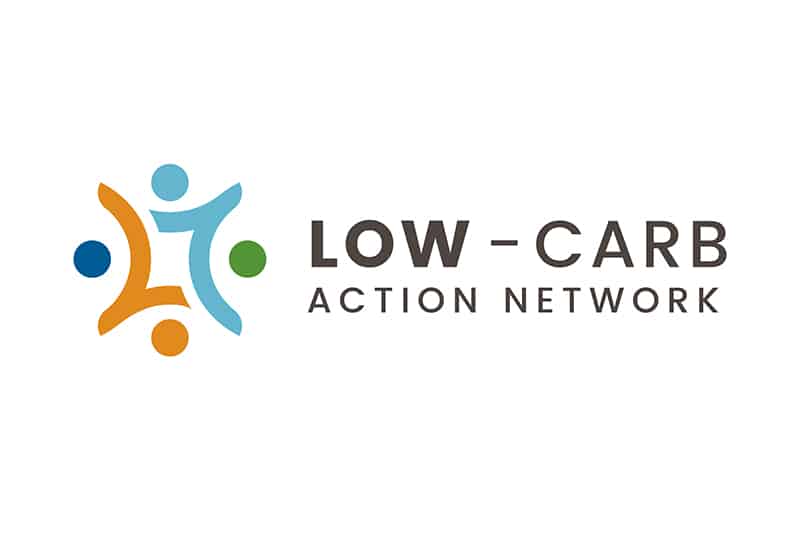Press Release: Low-Carb Action Network Applauds Comments by Academy of Nutrition and Dietetics on DGA Process
June 15, 2020

FOR IMMEDIATE RELEASE
June 15, 2020
Press Contact: Jessica Wharton
jessica@lowcarbaction.org
WASHINGTON, D.C. – The Low-Carb Action Network (L-CAN) today applauded comments submitted by the Academy of Nutrition and Dietetics to the Chair of the 2020-2025 Dietary Guidelines Advisory Committee (DGAC) which detail numerous concerns about the Dietary Guidelines for Americans (DGA) process.
“The Academy has presented an excellent and comprehensive review of problems in the scientific process by the Advisory Committee to the 2020 Dietary Guidelines,” stated Dr. Mark Cucuzzella, L-CAN Director, medical doctor, and professor of family medicine at West Virginia University. “The Academy found significant shortcomings in the methodology used to establish evidence-based nutrition recommendations and raises key questions about whether the Guidelines should continue to focus exclusively on preventing diet-related problems for healthy Americans or should expand its focus also to address people with diet-related chronic conditions, including obesity and diabetes, which now afflict a substantial majority of our population.”
He added, “The Academy also points out the high correlation between obesity and incidence of COVID-19, particularly among underserved ethnic groups, including African Americans. It further raises concern that the DGAC has excluded consideration of low-carbohydrate diets that can help Americans who are overweight or have obesity, as well as those who suffer from diabetes.”
L-CAN has previously submitted 52 scientific studies on low-carb diets to the DGAC after it stated that it had not reviewed any studies of diets with fewer than 25 percent of calories from carbohydrates. The Committee’s exclusion criteria specified that studies should not focus on weight loss, which appears to be a key reason why many low-carb diets were excluded. The rationale for this exclusion, according to USDA officials, is that the purpose of the DGA is only to prevent chronic conditions, not to treat or try to reverse them.
The Academy states, in bold text, “A Dietary Guidelines that does not address the two-thirds of Americans who are overweight or have obesity is, in our view, a nutrition policy that lacks relevance to much of the general public and reflects an insufficient review of the science.”
The Academy letter also states, “DGAC members noted that many of the public comments had been focused on the need to address obesity, given its prevalence in the American population, and he urged the committee to explain “with a little bit of detail and the reasons” why obesity and diets that might be shown to prevent it were “not taken into consideration in this iteration of the Dietary Guidelines.” [1]
The letter further notes that “the evidence base for many analyses came from studies predominantly on white, upper middle class individuals; moreover these studies failed to be adjusted for important “potential confounders such as race/ethnicity[and] socioeconomic status.” [2] It cites two relevant examples:
- For example, one DGAC member, regarding one review undertaken by the Subcommittee on Pregnancy and Lactation, noted “Most of the participants…were white, or the race/ethnicity was not reported. And most were mid- to high-socioeconomic status.” [3]
- “The reported outcomes varied across the studies, and the study populations often did not fully represent the race or ethnic and socioeconomic diversity of the US population.” [4]
In the letter’s closing remarks on the need for health equity, Academy President Linda T. Farr stated that “the Academy of Nutrition and Dietetics believe American society, leaders and organizations must commit to doing more to address systemic racism and pervasive inequities across all facets of society. The Academy believes that the DGAs … must include efforts to achieve health equity and reduce health disparities.”
Dr. Cucuzzella underscored this message saying, “L-CAN fully supports the Academy’s request that the DGAC delay submitting its expert report to USDA and HHS, currently scheduled for June 17, until all relevant science can be reviewed. The Committee’s charter will not expire until October 5, and we see no reason to hastily compile a report that will not address nutrition-related illnesses for the vast majority of Americans.”
##
The Low-Carb Action Network is a coalition of doctors, academics, advocates, and Americans with personal success stories, urging U.S. nutrition leaders to include a true low-carb diet as part of the 2020 Dietary Guidelines for Americans.
[1] Transcript of March 13, 2020 Afternoon Meeting of Dietary Guidelines Advisory Committee at minute 25-27; Sabaté. Available at https://globalmeetwebinar.
[2] Transcript of March 12, 2020 Afternoon Meeting of Dietary Guidelines Advisory Committee at 21; Boushey. Available at https://globalmeetwebinar.
[3] Public Meeting, March 12, Morning, at 2:19. Regarding a separate review by the same Subcommittee, she states, “They [the subjects] were predominantly non-Hispanic white and well-educated.” Public Meeting, March 12, Morning, minute 48
[4] Transcript of March 12, 2020 Afternoon Meeting of Dietary Guidelines Advisory Committee at 45; Heymsfield. Available at https://globalmeetwebinar.



